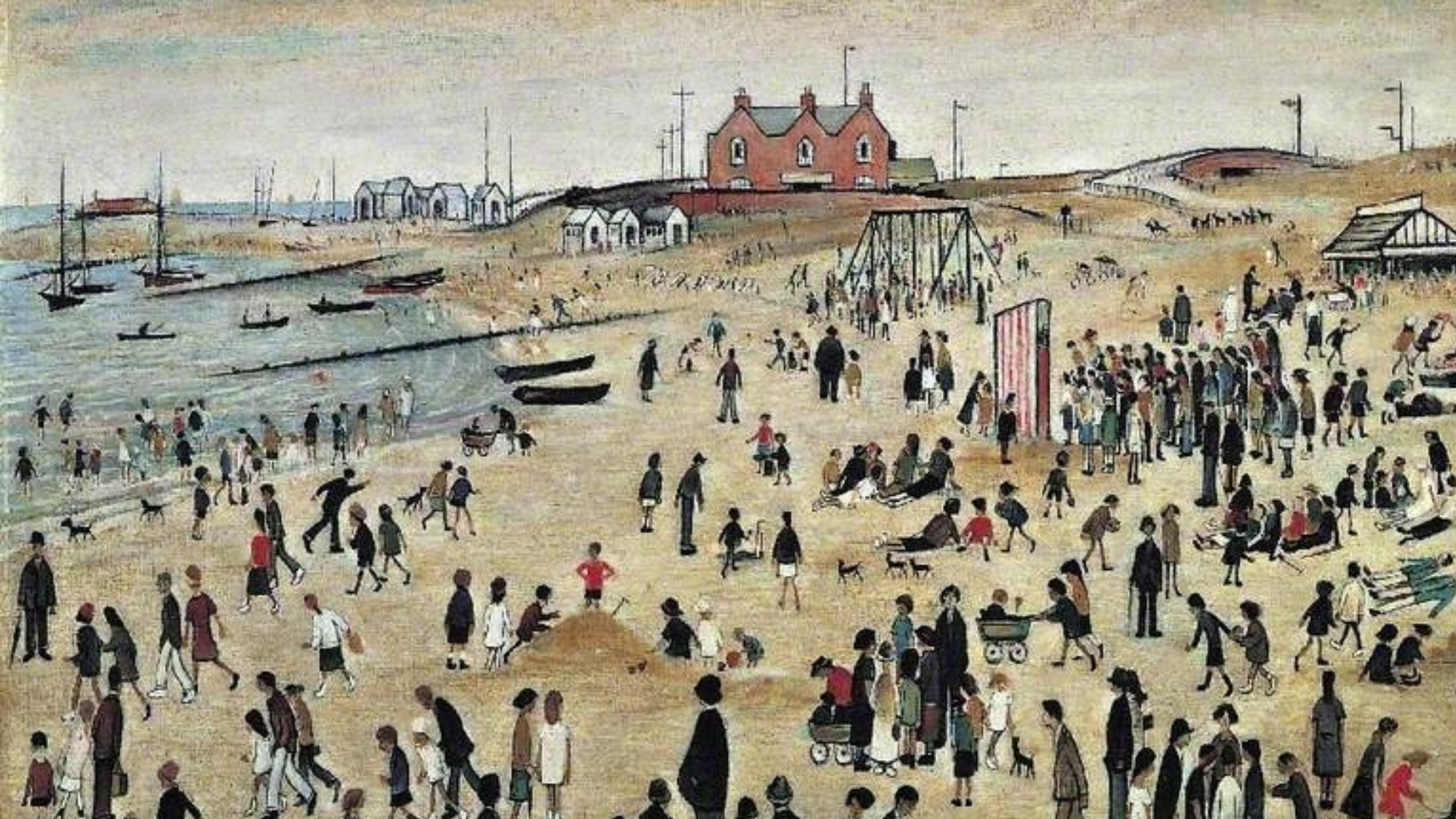Lowry and the Sea: 'intriguing' show explores 'enigmatic' seascapes
'Immaculately curated' exhibition features a series of paintings, pastels and drawings that show another side to the artist

A free daily email with the biggest news stories of the day – and the best features from TheWeek.com
You are now subscribed
Your newsletter sign-up was successful
L.S. Lowry (1887-1976) will forever be associated with the "industrial cityscapes" he painted of his native Lancashire, said William Cook in The Critic. The artist spent most of his life in Pendlebury in Greater Manchester, where he was born, raised, worked as a rent collector – and produced his depictions of "dark satanic mills and smoking chimney stacks". But from the 1930s until his death, he spent his summer holidays in Berwick-upon-Tweed, an "unfashionable seaside town" far removed from the "bright lights" of resorts such as Blackpool. Here, "far from the stress and bustle of his daily life", he made a number of "enigmatic" seaside paintings that, unlike his urban scenes, were mostly "bereft of human life".
This exhibition features more than 20 paintings, pastels and drawings; it explores Lowry's connections to Berwick and his little-understood seascapes, revealing "an entirely different side" to his work. It's an "intriguing" show that tells us much about "the inner life of this introverted artist".
His "love of the sea" went back to family holidays on the Lancashire coast and days out with his mother to Lytham St Annes, said Laura Gascoigne in The Spectator: an early painting, "Yachts at Lytham" (which isn't in this show), was apparently the only picture for which his mother, who disapproved of her son's industrial scenes, "ever expressed admiration". This show begins on a jolly note: in "July, the Seaside" (1943), "the familiar painter of matchstick men is at work, observing families at play like a traveller from another planet", capturing "a compendium of beach activities – swings, sandcastles, puppet shows, donkey rides" with a deadpan comedy.
The Week
Escape your echo chamber. Get the facts behind the news, plus analysis from multiple perspectives.

Sign up for The Week's Free Newsletters
From our morning news briefing to a weekly Good News Newsletter, get the best of The Week delivered directly to your inbox.
From our morning news briefing to a weekly Good News Newsletter, get the best of The Week delivered directly to your inbox.
Also charming is a "doodle" the artist scrawled on the notepaper of Berwick's Castle Hotel and gave to its receptionist. Most of his seascapes, however, "are a different kettle of fish": the "atmospheric" pastel "Yachts" (1920) conjures "the haze of a muggy English day" from a "tangled mass of opalescent strokes"; the impasto touches of 1960's "Spittal Sands, Berwick", meanwhile, suggest shapes in the distance "viewed through eyes screwed up against the glare".
After his mother's death, Lowry saw the sea as "a mirror to his loneliness", said Samuel Reilly in The Daily Telegraph. The ships that appear in his seascapes are "strangely crewless", less human creations than "elemental omens". Gradually, his palette is "pared back" to achieve an atmospheric effect not dissimilar to the haar, the thick sea fog seen on the northeast coast.
"The Sea", a particularly "astonishing" work of 1963, has the horizon "all but hazed out", the blue-grey crests of the waves threatening "to roll out" from the canvas and envelop the viewer. More peculiar still is 1966's "Self-Portrait as a Pillar in the Sea", in which Lowry depicts himself as "a single, inescapably phallic stack", buffeted by the waves, "a lonely, yearning man, claiming kinship with the sea". It's a highlight of a "small but immaculately curated" exhibition that is "as refreshing as a dunk in the North Sea".
Granary Gallery, Berwick-upon-Tweed, Northumberland. Until 13 October. Free entry
A free daily email with the biggest news stories of the day – and the best features from TheWeek.com